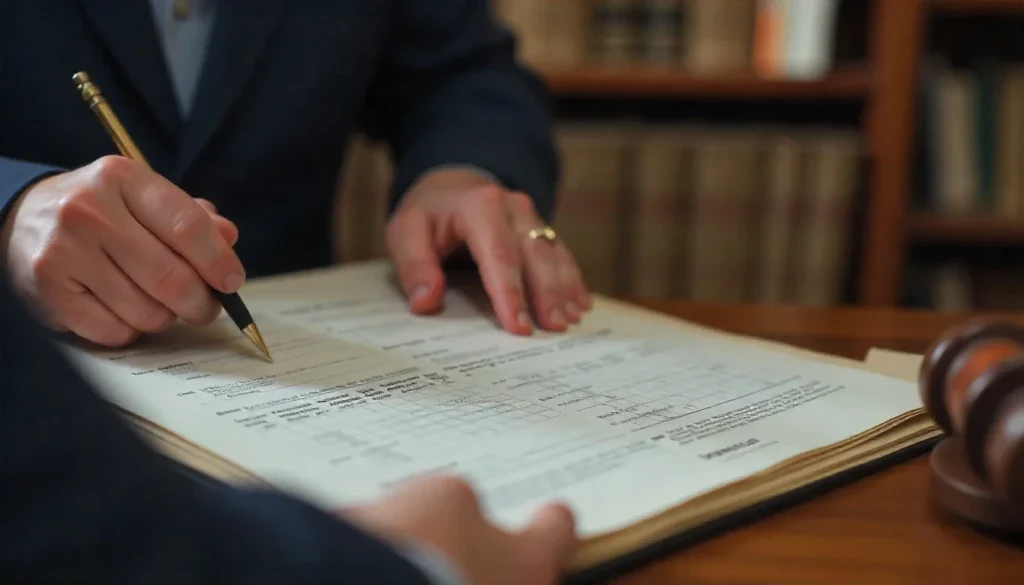If you’re dealing with the estate of someone who has passed away in New South Wales, you may have heard of the “Deceased Estate 3 Year Rule”. In simple terms, this rule affects how capital gains tax (CGT) applies when property from a deceased estate is sold. Specifically, if the property is sold within three years from the date of death, the estate may be exempt from capital gains tax—as long as certain conditions are met.
This can make a significant difference for beneficiaries, especially when the estate includes a family home or other valuable real estate. In this article, we’ll explain how the 3-year rule works, what the legal requirements are, and how to make sure your estate dealings comply with the law in NSW.
What Is the Deceased Estate 3 Year Rule in NSW?
The Deceased Estate 3 Year Rule is a capital gains tax exemption that applies when someone inherits property—usually a house or other real estate—from a deceased person. Under Australian tax law, if the property is sold within three years of the owner’s death, the sale may be exempt from CGT if:
-
The property was the deceased’s main residence; and
-
The property was not used to produce income (e.g. not rented out); and
-
The property is sold within 3 years of the deceased’s date of death.
This rule applies across Australia, but in NSW, where property values are high and estates can be complex, it’s especially important to get this right.
Why Is the 3 Year Rule Important?
When someone dies and leaves behind a house or property, it doesn’t automatically get transferred tax-free. Capital gains tax can apply when the property is eventually sold by beneficiaries or the estate.
However, if you sell the property within three years, and it meets the eligibility criteria, you could avoid CGT entirely, which could save tens or even hundreds of thousands of dollars—especially in Sydney or other parts of NSW where property prices are high.
The 3-year rule is essentially a grace period that allows time for the estate to be administered, and for beneficiaries to decide what to do with the property, without being penalised by capital gains tax.
When Does the 3-Year Period Start?

The 3-year clock starts ticking from the date of death of the deceased person—not from the date probate is granted, or from when the property is transferred.
For example:
If someone dies on 1 July 2022, the property would need to be sold by 30 June 2025 to qualify for the CGT exemption under the 3-year rule.
What Happens if the Property is Sold After 3 Years?
If the sale occurs after the 3-year period, the CGT exemption may no longer apply, and the estate or the beneficiary could be liable for capital gains tax on any profit made from the sale.
However, the Australian Taxation Office (ATO) can extend the 3-year period in limited circumstances—such as delays in obtaining probate, legal disputes, or unforeseen complications in administering the estate.
To seek an extension, you must provide evidence of the delays and show that reasonable steps were taken to sell the property earlier.
Who Can Claim the 3-Year CGT Exemption?
The 3-year exemption can apply in any of the following situations:
-
The property was the main residence of the deceased at the time of death;
-
The property was not used to earn rental income;
-
The property passes to a beneficiary, or is sold by the legal personal representative (usually the executor of the will);
-
The property is sold within 3 years of the deceased’s death.
If these conditions are met, neither the estate nor the beneficiary pays capital gains tax when the property is sold.
Exceptions: When the Rule Might Not Apply
There are some circumstances where the CGT exemption may not apply, including:
-
The property was rented out before or after the death;
-
The deceased did not live in the property as their main residence;
-
The property is sold more than 3 years after death without an approved extension;
-
The property is passed to a non-resident beneficiary.
Each situation is unique, and a legal or tax advisor can help you determine whether the exemption applies in your specific case.How to Maximise the CGT Exemption
Here are some practical steps you can take to ensure you make the most of the 3-year rule:
✅ Get Legal Advice Early
Speak to a wills and estates lawyer soon after the death occurs. A legal professional can help ensure all estate documents are processed promptly and the property is prepared for sale within the 3-year window.
✅ Start Probate Immediately
Delays in probate can push your timeline too close to the 3-year limit. Applying for probate as soon as possible helps avoid unnecessary hold-ups.
✅ Keep the Property Vacant (If Possible)
Avoid renting out the property, as this can affect the CGT exemption eligibility. If you must rent it, seek legal advice.
✅ Document Everything
If delays do occur—such as family disputes or issues with council approvals—keep written records. This can support an application to extend the CGT exemption period with the ATO.
What If There Are Multiple Beneficiaries?

In cases where a property is left to more than one beneficiary, and they disagree on what to do with it, selling the property quickly can become difficult. If the 3-year mark is approaching, it’s important to:
-
Try to reach an agreement as early as possible;
-
Consider appointing a legal personal representative to handle the sale;
-
Document any disputes and legal correspondence if delays are unavoidable.
In some cases, the executor may need to apply to the Supreme Court of NSW for directions or orders about the sale.
NSW-Specific Considerations
While the 3-year CGT rule is a federal tax rule, NSW has its own specific processes that affect estate administration:
-
NSW Land Registry: Titles must be updated before a sale can occur.
-
NSW Supreme Court: Probate must be granted for the executor to legally sell property.
-
Transfer Duty (Stamp Duty): There is generally no stamp duty on transfers to beneficiaries, but selling to a third party may trigger other tax consequences.
An experienced NSW estate lawyer can help you navigate both state and federal legal requirements.
What Is a Legal Personal Representative (LPR)?
A Legal Personal Representative (LPR) is the person responsible for managing the estate of someone who has died. This could be the executor named in the will or an administrator appointed by the court if there is no will.
The LPR plays a key role in the 3-year rule because:
-
They are legally responsible for lodging any tax returns;
-
They must report any property sales to the ATO;
-
They are in charge of ensuring the estate complies with all legal and tax obligations.
Selling a Deceased Estate Property: Step-by-Step
-
Obtain a Death Certificate
-
Apply for Probate through the Supreme Court of NSW
-
Identify and value the property
-
Check eligibility for the 3-year CGT exemption
-
List and sell the property
-
Distribute proceeds to beneficiaries
-
Lodge a final tax return for the deceased and/or the estate
Frequently Asked Questions
Q: Can I live in the inherited property and still claim the exemption?
Yes, if you move in and use it as your main residence, further CGT exemptions may apply under the main residence exemption rules.
Q: What if the deceased had already moved into aged care before death?
If the property was still considered their main residence, it may still qualify for the exemption—especially if it wasn’t rented out.
Q: What happens if the property increases in value before it’s sold?
As long as the sale is within 3 years and meets the criteria, any capital gain is still exempt from tax.
Need Help With a Deceased Estate in NSW?
At Lyon Legal Services, we understand that handling a deceased estate can be stressful and emotionally draining. Our experienced team offers clear, compassionate guidance and practical solutions to help executors and beneficiaries manage estate issues—including navigating the 3-year CGT rule.
We assist clients throughout NSW, including Sydney, Parramatta, Blacktown, and surrounding regions.
Contact us today for personalised legal advice on deceased estates, probate, and property sales.
Conclusion
The Deceased Estate 3 Year Rule in NSW is an important tax concession that can save your estate or beneficiaries a significant amount of money. However, understanding the legal timelines and tax implications is essential. Acting quickly, seeking professional advice, and maintaining clear documentation can help ensure you don’t miss out on this valuable exemption.
Whether you’re an executor, a beneficiary, or just unsure of your legal rights, getting the right legal support early on can make all the difference.


















